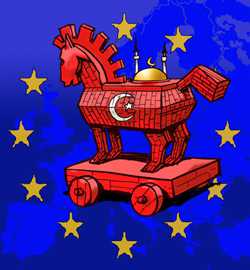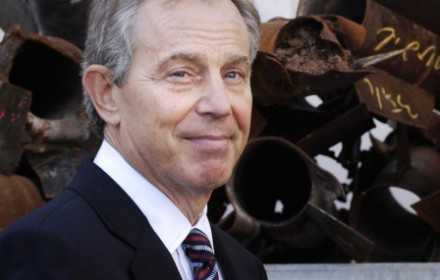John Pilger
01 October 2009
Obama’s “showdown” with Iran has another agenda. The media have been tasked with preparing the public for endless war

In 2001, the Observer published a series of reports that claimed an “Iraqi connection” to al-Qaeda, even describing the base in Iraq where the training of terrorists took place and a facility where anthrax was being manufactured as a weapon of mass destruction. It was all false. Supplied by US intelligence and Iraqi exiles, planted stories in the British and US media helped George Bush and Tony Blair to launch an illegal invasion which caused, according to the most recent study, 1.3 million deaths.
Something similar is happening over Iran: the same syncopation of government and media “revelations”, the same manufacture of a sense of crisis. “Showdown looms with Iran over secret nuclear plant”, declared the Guardian on 26 September. “Showdown” is the theme. High noon. The clock ticking. Good versus evil. Add a smooth new US president who has “put paid to the Bush years”. An immediate echo is the notorious Guardian front page of 22 May 2007: “Iran’s secret plan for summer offensive to force US out of Iraq”. Based on unsubstantiated claims by the Pentagon, the writer Simon Tisdall presented as fact an Iranian “plan” to wage war on, and defeat, US forces in Iraq by September of that year – a demonstrable falsehood for which there has been no retraction.
The official jargon for this kind of propaganda is “psy-ops”, the military term for psychological operations. In the Pentagon and Whitehall, it has become a critical component of a diplomatic and military campaign to blockade, isolate and weaken Iran by hyping its “nuclear threat”: a phrase now used incessantly by Barack Obama and Gordon Brown, and parroted by the BBC and other broadcasters as objective news. And it is fake.
The threat is one-way
On 16 September, Newsweek disclosed that the major US intelligence agencies had reported to the White House that Iran’s “nuclear status” had not changed since the National Intelligence Estimate of November 2007, which stated with “high confidence” that Iran had halted in 2003 the programme it was alleged to have developed. The International Atomic Energy Agency has backed this, time and again.
The current propaganda derives from Obama’s announcement that the US is scrapping missiles stationed on Russia’s border. This serves to cover the fact that the number of US missile sites is actually expanding in Europe and the “redundant” missiles are being redeployed on ships. The game is to mollify Russia into joining, or not obstructing, the US campaign against Iran. “President Bush was right,” said Obama, “that Iran’s ballistic missile programme poses a significant threat [to Europe and the US].” That Iran would contemplate a suicidal attack on the US is preposterous. The threat, as ever, is one-way, with the world’s superpower virtually ensconced on Iran’s borders.
Iran’s crime is its independence. Having thrown out America’s favourite tyrant, Shah Reza Pahlavi, Iran remains the only resource-rich Muslim state beyond US control. As only Israel has a “right to exist” in the Middle East, the US goal is to cripple the Islamic Republic. This will allow Israel to divide and dominate the Middle East on Washington’s behalf, undeterred by a confident neighbour. If any country in the world has been handed urgent cause to develop a nuclear “deterrence”, it is Iran.
As one of the original signatories of the Nuclear Non-Proliferation Treaty, Iran has been a consistent advocate of a nuclear-free zone in the Middle East. In contrast, Israel has never agreed to an IAEA inspection, and its nuclear weapons plant at Dimona remains an open secret. Armed with as many as 200 active nuclear warheads, Israel “deplores” UN resolutions calling on it to sign the NPT, just as it deplored the recent UN report charging it with crimes against humanity in Gaza, just as it maintains a world record for violations of international law. It gets away with this because great power grants it immunity.
Preparing for endless war
Obama’s “showdown” with Iran has another agenda. On both sides of the Atlantic the media have been tasked with preparing the public for endless war. The US/Nato commander General Stanley McChrystal says 500,000 troops will be required in Afghanistan over five years, according to America’s NBC. The goal is control of the “strategic prize” of the gas and oilfields of the Caspian Sea, central Asia, the Gulf and Iran – in other words, Eurasia. But the war is opposed by 69 per cent of the British public, 57 per cent of the US public and almost every other human being. Convincing “us” that Iran is the new demon will not be easy. McChrystal’s spurious claim that Iran “is reportedly training fighters for certain Taliban groups” is as desperate as Brown’s pathetic echo of “a line in the sand”.
During the Bush years, according to the great whistleblower Daniel Ellsberg, a military coup took place in the US, and the Pentagon is now ascendant in every area of American foreign policy. A measure of its control is the number of wars of aggression being waged simultaneously and the adoption of a “first-strike” doctrine that has lowered the threshold on nuclear weapons, together with the blurring of the distinction between nuclear and conventional weapons.
All this mocks Obama’s media rhetoric about “a world without nuclear weapons”. In fact, he is the Pentagon’s most important acquisition. His acquiescence with its demand that he keep on Bush’s secretary of “defence” and arch war-maker, Robert Gates, is unique in US history. He has proved his worth with stepped-up wars from south Asia to the Horn of Africa. Like Bush’s America, Obama’s America is run by some very dangerous people. We have a right to be warned. When will those paid to keep the record straight do their job?
New Statesman





